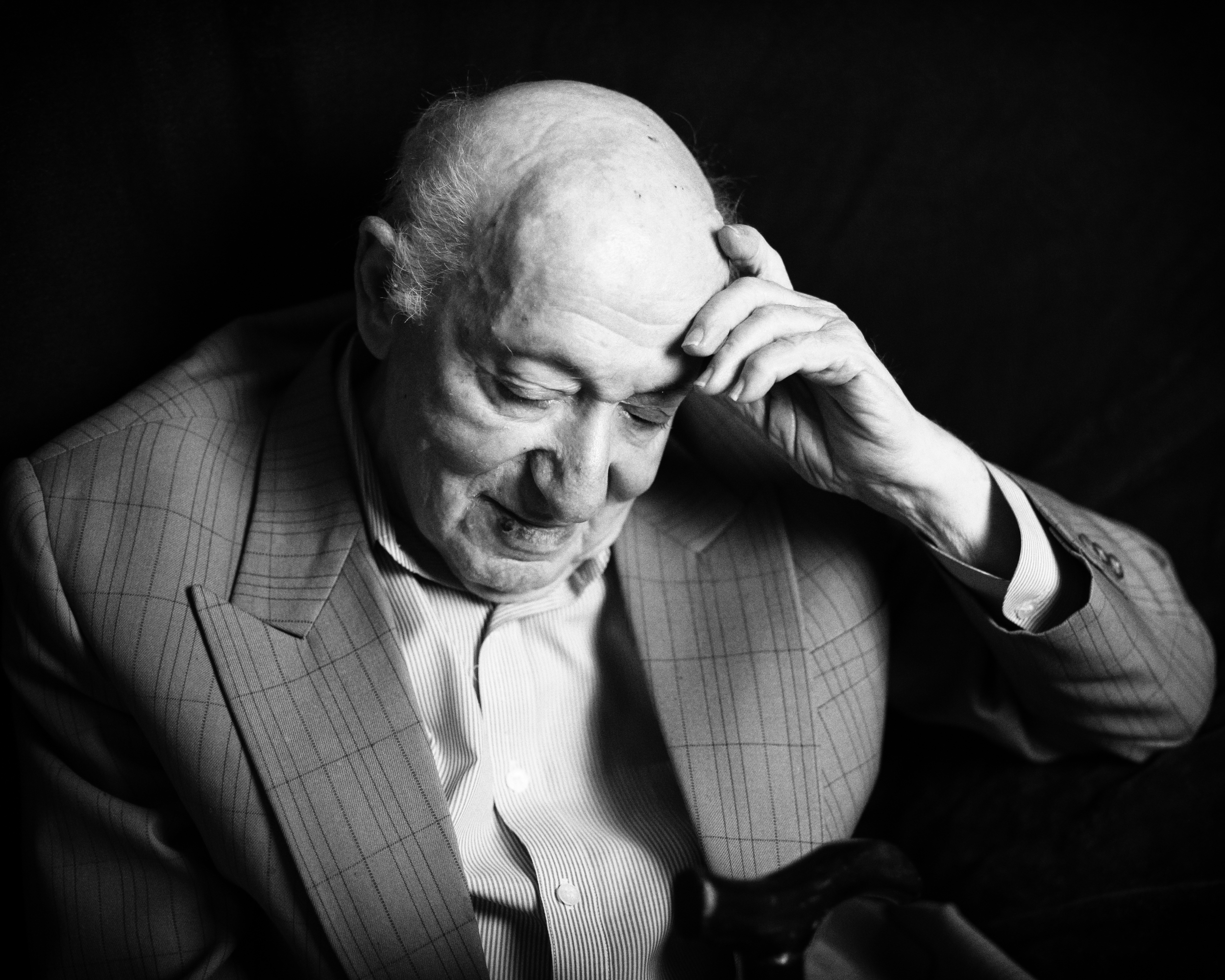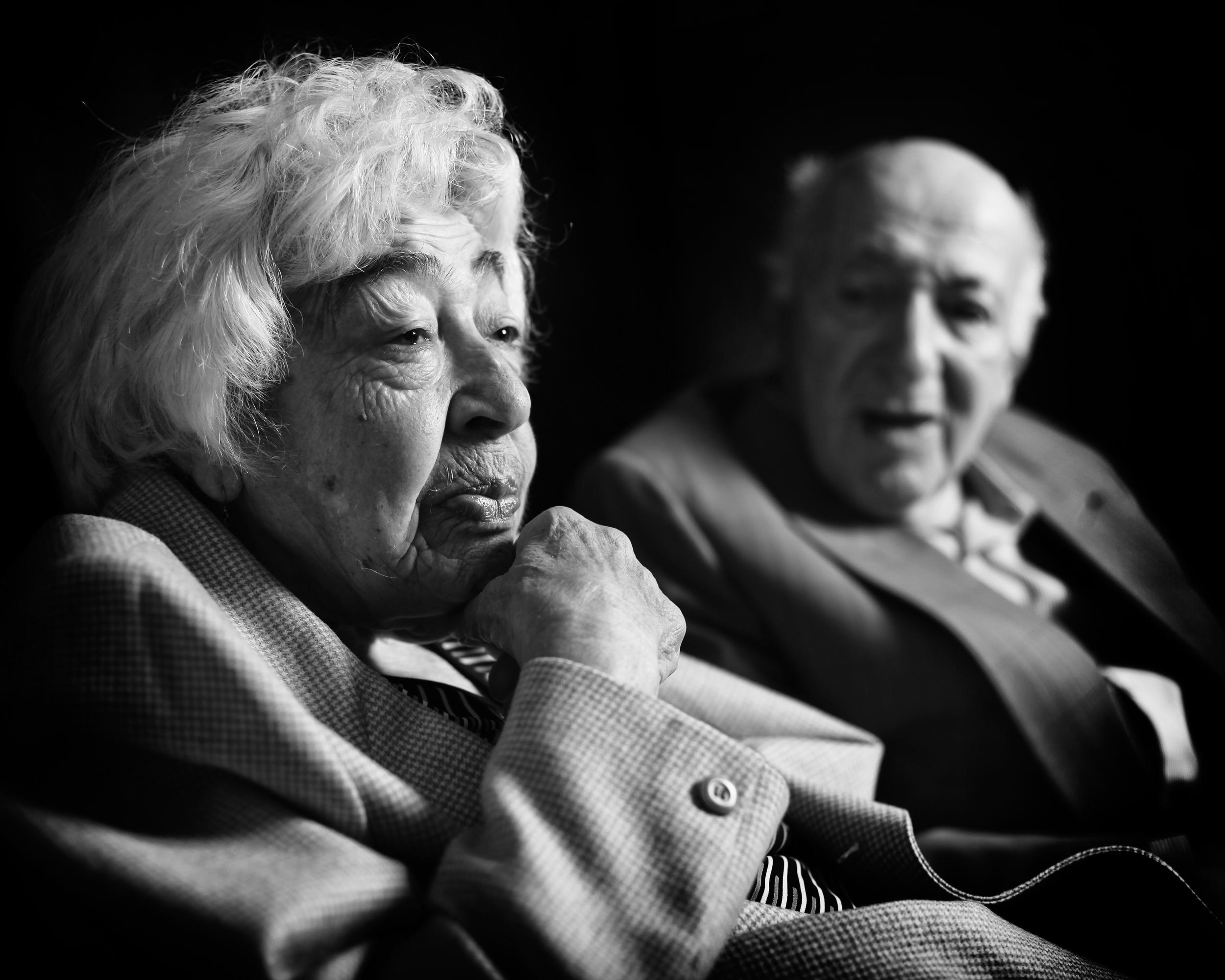When we were young we were completely different people with a different attitude to life. We believed in something. We believed that there had to be a victory and we believed in Stalin. We understood that he lost the beginning of the war, but we still believed in him. But then we started to get scared.
What can be interesting about being at war? Well, I remember how the temperature dropped in October and we had nowhere to sleep. What did we do? We would gather some branches, large swaths of fir, and then sleep on top of them, wrapped in our overcoats. That was day-to-day soldiering stuff. In Yugoslavia one time our division was surrounded. When we made it out we were so happy. I can’t even tell you what things were like there, or how we got out.
Victory Day was horrifying and fascinating. No one knew when the victory would come, when it would begin. By that point our units were by Graz. That’s a city in Austria; it was then the second largest after Vienna. By the time we came to its outskirts the locals had scattered. There was no one there. All of the houses were empty, bare. The soldiers were wandering around, looking at everything. They lived in much better conditions. We stayed on one of the hills. We had an artillery cannon and machine guns. Suddenly, in the middle of the night, shooting broke out all around us. We had never seen such heavy fire -- and we had seen a lot. We even got frightened. Someone sent a soldier to find out what was going on. He said that there were tanks and that they were shooting from every direction. I thought German tanks had broken through. It was starting to get light out, and everyone was shooting; we couldn’t figure out what was going on. Turns out it was May 8. The tank crews had heard on the radio that the war was over. It was such a relief. We had all been so afraid; we thought we were surrounded, that we were about to face an unequal battle.
After the war we lived in a large communal apartment in Moscow, and you would think that people living together would get closer. But even though everything was very quiet, I realized that anti-Semitism was all around. When I came back from the front, I brought a gun with me. It wasn’t a big deal at the time to bring back a gun. If you had one, you had one; if you didn’t, you didn’t. One time I got home and my mom was laughing. “Mom, what happened?” I asked. She kept laughing. “Go look at your gun and your bullets,” she said. My dad got scared when he saw that I brought a gun, and while I was away he took it apart, got all of the bullets, and walked out and threw all of the parts into different trash cans. A couple of weeks later, or maybe 10 days later, an officer from the criminal investigations unit came with a search warrant. What happened? We heard you have a weapon. Who told you that? We heard you have a weapon, turn in your weapon. Luckily there was no weapon, because my father had thrown it away. They turned the entire house upside down, went through all of the furniture, took everything apart, and put everything back together. The gun wasn't very big, and they knew that it could be concealed. But no matter how long they searched they did not find it. My father knew some people in the police department, so he went there and asked, “What happened? Why did they send an officer?” He was told that our neighbor had tattled on us, she had reported that we had a gun. How? When? There was another neighbor, also an anti-Semite, so when that anti-Semitic stuff flared up...
When? It happened several times... There were six families in the apartment – quite a crowd.
They kept submitting complaints about us, and the police would come with search warrants, looking for Zionist literature. When my grandmother visited from Kiev we would celebrate Jewish holidays. When we did the Passover Seder, or some other holiday, we would cook everything in the room. We were afraid to take anything to the kitchen, afraid that our neighbors would see us celebrating a Jewish holiday. We lived very simply, but when Passover came, my mom would find matzo somewhere. But we had to hide it so that no one knew; we were afraid that they would report us to the police or somewhere else, and that there would be another search.
I also remember how, already after the war, my mom would wake me up at 6 am or 5 am, so that I could go to the bakery and buy a roll for my sister. Bread was restricted to 200 grams per ration card, but you could buy these rolls in a 14-story house next to Belorussky railway station.
Translation from Russian by Luba S. Chaffee

